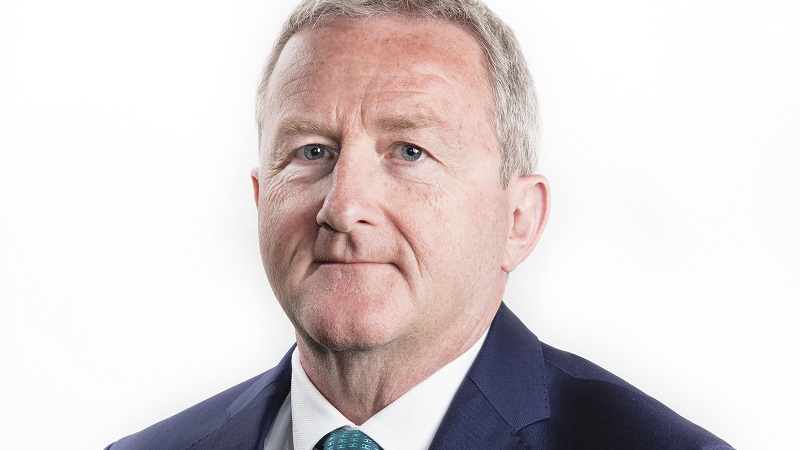Fixed income portfolios should shun risk and erect liquidity buffers against future shocks, argues Twentyfour Asset Management’s founding partner.
“We don’t want to be among the top-decile funds. If we were, then it would mean that we were taking on too much risk. Instead, we’re happy to aim for the top quartile,” Gary Kirk, a founding partner at the Vontobel subsidiary, said at a media briefing.
His outlook for the global economy and the impact of geopolitical events — especially the Sino-US trade dispute and Brexit — is gloomy, and he believes fixed income investors should position their portfolios defensively.
“Income and multi-sector mandates will have to embrace credit risk, and we believe those risks should be short-dated, high quality and recession resilient to help mitigate volatility,” said Kirk.
“Much higher weightings should be given to negatively-correlated, risk-free rates products — particularly US Treasuries — with longer durations, despite the rally seen already this year,” he added.
Liquidity shapes fixed income preferences
Kirk is co-manager of the £2.4bn Twentyfour Strategic Income Fund. Vontobel Asset Management bought 60% of the firm, a fixed interest specialist, in 2015.
Liquidity is especially important to Kirk’s current approach, which is a view shared by other fixed income fund managers.
For instance, Fraser Lundie, head of credit at Hermes Investment Management, told Portfolio Adviser sister publication Fund Selector Asia earlier this month that liquidity is shaping fixed income preferences, and JP Morgan Asset Management’s Asia chief market strategist Tai Hui favoured liquid investment grade bonds over high yield credit and equities.
Several unconstrained bond funds, such as those run by Pictet and Legg Mason, also favour Kirk’s barbell approach to portfolio construction, balancing risk-on and risk-off securities.
Moving longer in duration
“Our fund has tactical positions in liquid bonds as we watch quantitative easing developments by central banks. It is important to a maintain a large liquidity buffer through holdings of easily trade-able securities to enable us to effect change rapidly,” said Kirk.
About 40% of the portfolio is allocated to US Treasuries, with weighted average duration of five years, although it is likely to lengthen to seven years in the coming months which is “the optimum duration for risk-free rates during this stage in the economic cycle,” according to Kirk.
“Sterling-denominated credits are relatively attractive compared with dollar- and euro-denominated issues because of a Brexit yield premium,” he said.
Hence, the credit component of the portfolio comprises 25% UK corporate bonds with an average yield spread duration of two-to-three years, and the rest of the portfolio is made up of a mixture of euro-denominated government and corporate bonds.
Twentyfour Strategic Income fund’s tactical preferences
| Positive | Negative |
| Short duration credit BB and above | Long duration credit spreads |
| Longer duration rates (govt. bonds) | Unsecured risk |
| US treasuries | Extension risk for corporate bonds |
| Spanish govt. bonds | Technology |
| Callable insurance and bank bonds | Retail |
| Non-bank financials | Automotive |
| Secured securities | Gaming |
| ABS | Hotels |
| Latam hard currency EM corporate bonds |
Source: Twentyfour Asset Management
The fund has generated a 7.58% cumulative return in US dollar terms since the launch of the US-denominated sub-fund in May 2018, outperforming its global fixed income category average of 4.68%, according to FE Analytics data.
It has also suffered less price turbulence than its peers, with annualised volatility of 2.01%.
Fiscal versus monetary policy
“Risk management, scenario analysis and stress testing should be at the forefront of portfolio construction, with a strong focus on volatility management,” said Kirk.
He believes that all asset classes are vulnerable as the economic cycle enters its “most tricky stage”, with risks clearly tilted towards the downside. Although, central banks are likely to act to protect their economies from recession and extend the decade-long economic upturn further, negative interest rates in most of Europe and in Japan limit the scope of monetary policy.
“Instead, governments need to provide a fiscal boost,” argued Kirk.
But in Europe, EU rules restrict fiscal deficits to 3% of national GDP, so “shock risks hang over the markets, which are capable of producing a recessionary environment and which would be difficult to counter”, he added.
“Hence, we believe more defensive positioning is required, coupled with high levels of liquidity in order to allow us to to make sudden portfolio adjustments.”







